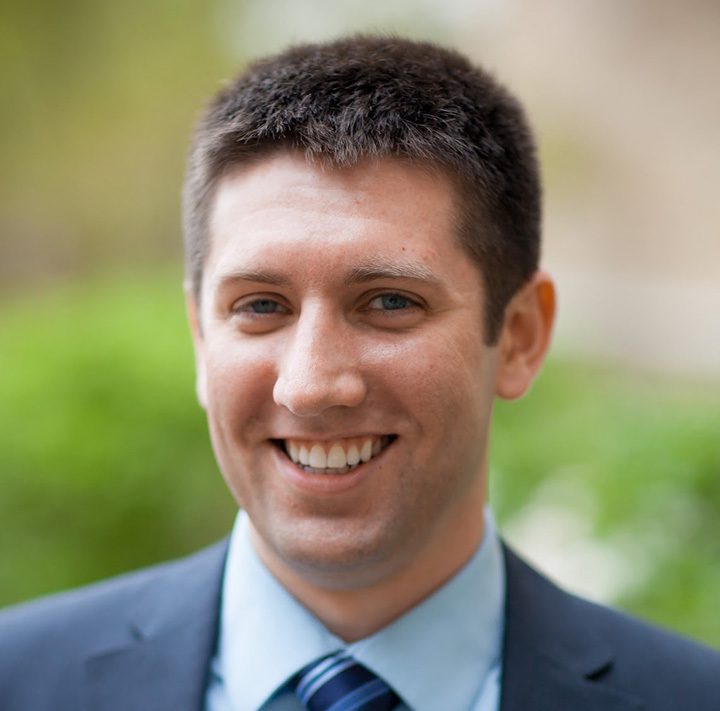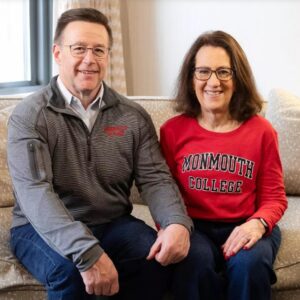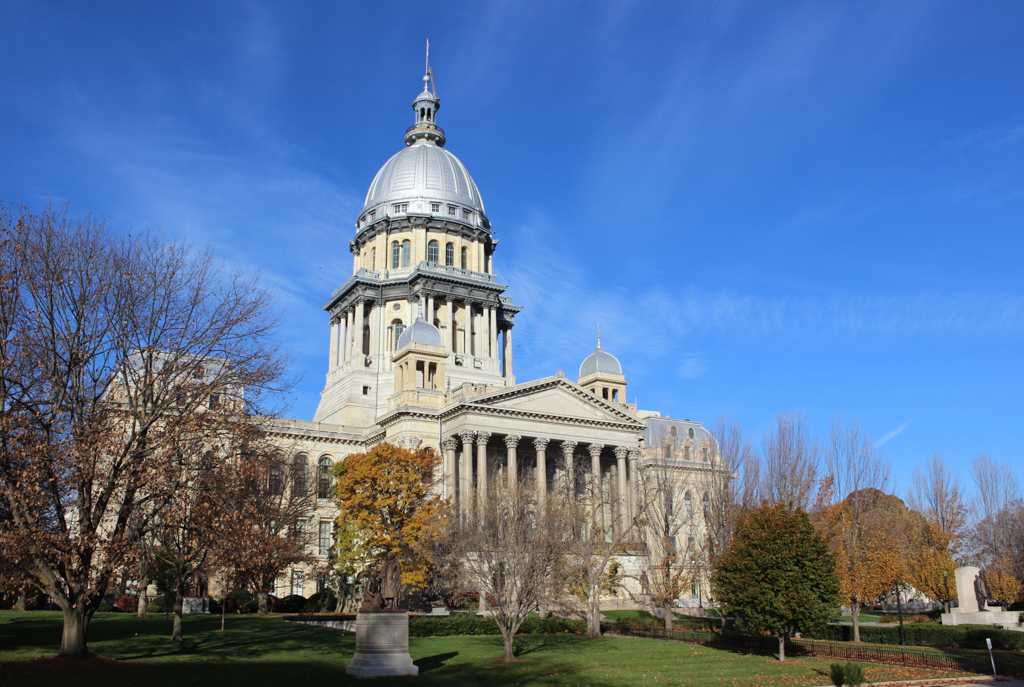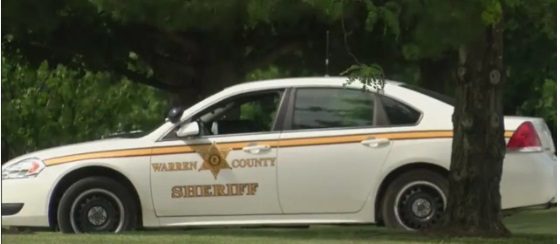Monmouth College students in a pair of classes taught during the spring semester by political science professor Andre Audette took an active role in examining current events.
Audette’s “Constitutional Law” students put themselves in the shoes of U.S. Supreme Court justices, writing a legal opinion ahead of the Court’s official May 11 ruling on National Pork Producers Council v. Ross (full opinion here). To prepare for that portion of the assignment, they read the legal briefs and listened to the oral arguments for the case, which centers around a California law that barred the sale of pork produced by pigs who were housed in a “cruel manner.”
Meanwhile, Audette’s “Public Opinion” students took on the topic of political polarization, focusing specifically on whether or not, in the view of the American people, there is even polarization within the Republican and Democratic parties.
Intra-party divides
“Republicans seem to be divided between a MAGA wing, represented by former President Donald Trump, and a more traditional, establishment wing, represented by people like Senate Minority Leader Mitch McConnell,” said Audette.
Similarly, he said, Democrats might be divided between a more progressive wing, fronted by Sen. Bernie Sanders and Rep. Alexandria Ocasio-Cortez, and a moderate wing that includes President Joe Biden.
“The class wanted to explore further whether these intra-party divides existed among the American people and not just among party elites,” said Audette.
To do so, his students proposed, designed and conducted a national survey on the Amazon Mechanical Turk platform. The survey was completed by 845 respondents from 48 states.
“We asked whether people feel represented by the party in terms of policies, whether they will vote for the nominee of their party no matter who it is, and whether they feel like their party is more united or divided,” said Audette.
“The most surprising data point to me was that Democrats perceive less of a divide in ideology in their own party than Republicans,” said Tyler Houck ’24 of Park Ridge, Illinois. “They are more likely to ‘like’ their own party, feel represented by it, support the policies and candidates, and conform to the electoral needs of the party.”
Houck was already very interested in the political scene, and the work that he and his classmates did may now become a part of it.
“This class allowed us to take the theories and information we learned about polling and put our own mark on an issue,” he said. “We purposely chose a topic with little research already done on it, and it has a very real chance of being cited by numerous studies on the topic of intraparty polarization, which, as someone who is a fan of reading polling data, is exciting.”
“I think our research shows that there is a chance for the primaries – especially for Republicans who don’t have a true incumbent – to be messy and divisive,” said May graduate Shay Hafner. “People don’t always agree with or like their own party, and direct in-party competition could bring that out to an even greater degree. But, when the primary is over, the results show that people will likely not vote against their own party, even if their preferred candidate loses.”
In the fall, Hafner will attend the University of Notre Dame to pursue a Ph.D. in political science.
“I’m hoping to do work just like this,” he said of his doctoral studies. “This class and project gave me firsthand experience with the kind of political science research I hope to be doing for a long time.”
Far from ‘pork barrel’ legislation
National Pork Producers Council v. Ross centered on a California law known as Proposition 12, which forbade the in-state sale of pork meat that came from breeding pigs or their immediate offspring that were “confined in a cruel manner.” Although Audette admitted that the pork producers case sounds “obscure,” he said it could potentially affect the national economy in substantial ways.
“For example, the oral arguments included questions about whether a state could prohibit products from being sold if they were not produced in a state with a high enough minimum wage or that did not support a right to unionize,” he said. “In addition to plausibly higher pork prices, it allows states to create new laws regulating the morality of goods produced in- and out-of-state.”
The Court’s ruling was by no means unanimous, but the divide wasn’t the familiar one along ideological lines. Justice Neil Gorsuch wrote the majority opinion, joined by Justices Clarence Thomas, Sonia Sotomayor, Elena Kagan and Amy Coney Barrett. An opinion written in concurrence and dissent was authored by the chief justice, signed also by Justices Samuel Alito, Brett Kavanaugh and Ketanji Brown Jackson.
“Even as the Supreme Court finds this a tricky issue to rule on, I was particularly impressed with my students’ ability to discuss, analyze and decide the case,” said Audette. “Some of the students decided the case pretty close to how the Court ultimately decided it.”
“This is both an obscure and unorthodox case, as it pushes the boundaries and jurisdiction of the extraterritoriality doctrine and the dormant Commerce Clause,” said Brady Arrenius ’26, a political science and Spanish major from Albuquerque, New Mexico. “As we saw in the case, California was able to enact Proposition 12 and prove its constitutionality by proving that states don’t have to change their local markets in order to tailor to the restrictions that California placed.”
Arrenius, who plans to pursue a law degree and a doctorate, said it was the first “real” law class he’s taken.
“Andre made clear some constitutional issues and questions that are still being asked today,” he said. “This class helped me build my argument skills, reading skills and overall law skills that will be used for the rest of my life.”
Another student from the class, Kailyn Gore ’23 of Marlton, New Jersey, also plans to pursue a law degree, focusing on international law, to go with a doctorate in politics, with an emphasis on Middle Eastern and Islamic studies.
She said Audette “provided a framework for me to interpret questions of constitutionality … by ensuring I knew the in-and-outs of over a hundred Supreme Court cases. His tailored line of questioning about Supreme Court cases that stretch from our country’s founding enabled me to think deeply about the evolution and interplay between the law and politics, its way of serving as an agent for change, and how I can play a role in it.”
***Courtesy of Barry McNamara, Monmouth College***

















